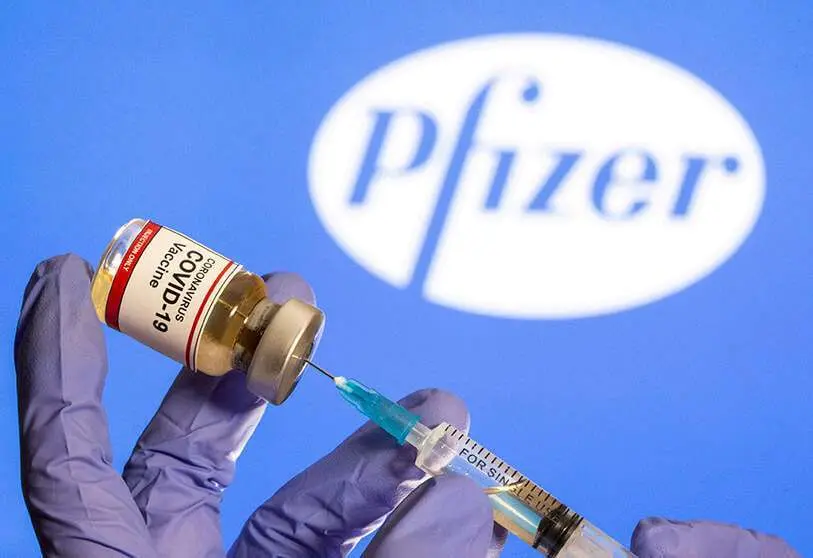Pfizer's full course of vaccine generates six-month immunity

A study published in The Lancet shows that receiving two doses of Pfizer-BioNTech's COVID-19 vaccine (BNT162b2) is highly effective against the most severe form of the coronavirus. They are 90% effective against COVID-19 hospitalisations for all variants, including Delta, for at least six months.
The study, conducted by the NGO Kaiser Permanente and Pfizer, also notes that effectiveness against all SARS-COV-2 infections declined during the study period, from 88% in one month after receiving two doses of the vaccine to 47% after six months. However, effectiveness against hospitalisations remained at 90% overall and for all variants.
These findings are consistent with preliminary reports from the US Centers for Disease Control and Prevention (CDC) and the Israeli Ministry of Health that found reductions in BNT162b2 against infection after approximately six months. The researchers say this study underscores the importance of improving COVID-19 vaccination rates worldwide and monitoring vaccine effectiveness to determine which populations should be prioritised for booster vaccines.
"Our study confirms that vaccines are a critical tool in controlling the pandemic and remain highly effective in preventing serious illness and hospitalisations, including Delta and other variants of concern. Protection against infection wanes in the months following a second dose," says the study's lead author, Sara Tartof, PhD, of the Department of Research and Evaluation at Kaiser Permanente Southern California (USA).

While this study provides evidence that immunity decreases for all age groups who received the vaccine, the CDC's Advisory Committee on Immunisation Practices has called for additional research to determine whether booster vaccines should be made available to all age groups eligible for this vaccine. "Consistent with recent FDA and CDC recommendations, considerations for booster vaccines should take into account the global supply of COVID-19 vaccines, as people in many countries around the world have not yet received a primary vaccination series," she warns.
Researchers analysed 3,436,957 electronic medical records from the Kaiser Permanente Southern California (KPSC) health system between December 4, 2020, and August 8, 2021, to assess the effectiveness of the BNT162b2 vaccine against SARS-CoV-2 infections and COVID-19-related hospitalisation. During the study period, 5.4% (184,041 / 3,436,957) of people were infected with SARS-CoV-2. Among those infected, 6.6% (12,130 / 184,041) were hospitalised. The average time from full vaccination was three to four months.
A whole genome sequencing and viral lineage analysis of 8,911 PCR-positive SARS-CoV-2 samples from the study cohort determined that the delta variant comprised 28% of the total proportion of positive sequences. During the study period, the proportion of positive cases attributed to the delta variant increased from 0.6% in April 2021 to nearly 87% in July 2021, confirming that the delta variant had become the dominant strain in the United States.
Vaccine efficacy against Delta variant infections one month after two doses of BT162B2 was 93% and dropped to 53% after four months. Efficacy against other (non-Delta) variants one month after two doses was 97% and dropped to 67% after four months. Efficacy against delta-related hospitalisations remained high (93%) throughout the study period.

The researchers did not observe a difference in decline between SAR-CoV-2 variant types. However, the authors note that because delta became the dominant strain in the middle of the study period, analyses with longer follow-up are warranted to measure the rate of decline of delta compared to other variants.
"Our variant-specific analysis clearly shows that the BNT162b2 vaccine is effective against all current variants of interest, including Delta. COVID-19 infections in people who have received two doses of the vaccine are likely due to depletion and are not caused by Delta or other variants that escape vaccine protection," adds Luis Jodar, MD, senior vice president and chief medical officer of Pfizer Vaccines.
The authors acknowledge some limitations in their study. The researchers were unable to determine causal relationships between vaccination and COVID-19 outcomes, as vaccination status among the study population was not randomised. The researchers also did not have data on adherence to mask guidelines, social interactions, occupation and disease rates in the study population, which could affect the likelihood of contracting and being tested for SARS-CoV-2 infection.
They also note that estimates of vaccine efficacy against SARS-CoV-2 infections and hospitalisations could be attenuated by mild or asymptomatic infections and are not directly comparable with estimates of efficacy against symptomatic disease. Sequencing was more likely to fail among vaccinees due to lower viral loads.








